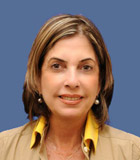 Dear
Friends,
Dear
Friends,
Israel will soon celebrate 69 years of independence. As has
been the case for many years, our great pride and excitement are mixed with fear
and uncertainty. We are keeping a close eye on the security situation in the
region, the backdrop of heightened global terrorism, and anti-Semitism and other
problems at home and abroad.
The city of Tel Aviv is under a continuous
threat of terror as a frontline target that keeps us on constant alert,
24/7.
This is why we are in the process of expanding the Emergency Room,
increasing efficiency, and fine-tuning emergency preparedness.
This
expansion is just one of the many essential initiatives that Tel Aviv Sourasky Medical Center is
pursuing for the benefit of patients, research, development, and staff
enrichment. In order to achieve this mission, funding is needed, and the
Association of Friends continues to search for resources to finance these
programs.
We have been expanding our international outreach with visits
to friends of the Medical Center in Europe. You can read about our meeting with
our British supporters in this Medipost issue. We are also planning a visit with
champions for our cause in Paris through the recently established
French Friends of Tel Aviv Sourasky Medical Center.
With spring in
the air and many opportunities ahead, I would like to thank you personally for
partnering with us, and wish you and your family a Happy Passover!
With
blessings for a healthy holiday and year,
Ronit Blum
CEO,
The
Association of Friends of Tel Aviv Sourasky Medical Center

Professor Gamzu speaking in
London
Friends in London support the Medical Center
Israel
Mazin, a long-time donor to and advocate of Tel Aviv Sourasky Medical Center who
lives in London and has been running his businesses there in recent years, has
embarked on a campaign to support the Medical Center’s mission.
Mr. Mazin
organized an introductory event in London that was attended by 40 guests from
the business community. Participants had the opportunity to meet Professor
Gamzu, who shared highlights of Tel Aviv Medical Center’s mission-critical
activities and his vision for the future of patient care and
research.
Donations
The Meir Dagan Surgical Intensive Care Unit is
dedicated
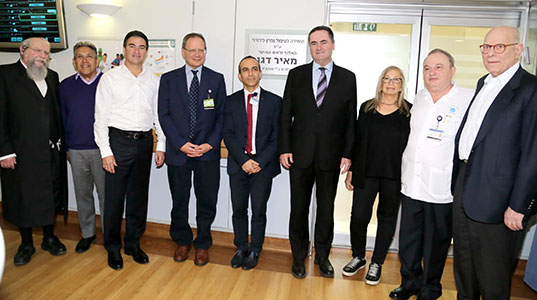
Tel Aviv Sourasky
Medical Center held a moving ceremony in March to dedicate the Meir Dagan
Surgical Intensive Care Unit. The unit is named for the late Meir Dagan, a
former major-general in the Israeli army and a former director of the
Mossad.
Guests pay tribute to a man of
valor
The event was attended by a host of honored guests, including
Transportation Minister and Intelligence Minister Israel Katz, National Security
Advisor and Mossad Director Yossi Cohen, former Shin Bet Chief Yuval Diskin,
former Mossad director Tamir Pardo, Tel Aviv Sourasky Medical Center CEO
Professor Ronni Gamzu, Surgery Division Director Professor Joseph Klausner, Ezra
LeMarpeh Director Rabbi Elimelech Firer, and members of the Dagan family,
including Meir’s wife Bina, his brother, children, and
grandchildren.
Professor Yitzhak Shapira, the medical center’s Deputy
Director General and Dagan’s personal physician, spoke about their enduring
friendship and the medical team’s efforts to save Dagan’s life.
Professor Gamzu described the unique relationship
between the Medical Center and Israel’s security services, while Dr. Katz
recalled Dagan’s dedicated work on behalf of the State of Israel. Dagan’s legacy
enriches a nationwide mission of care and service, such as helping thousands of
patients and visitors gain access to the Medical Center via a new tunnel linked
to the light rail.
Remembered for his
determination
Dagan’s daughter Noa said that giving her father’s
name to a unit that works night and day to save lives was a touching tribute to
his memory. She described the devoted care that her father received and the
friendship, trust and love that developed between Dagan and the medical team,
and said that Tel Aviv Sourasky Medical Center had become like a home for the
Dagan family.
The hospital thanked the Dagan family for their trust
and the donation they made in Meir’s memory: a care unit that represents Meir
Dagan’s fighting spirit.
Fresh clothes, fresh outlook
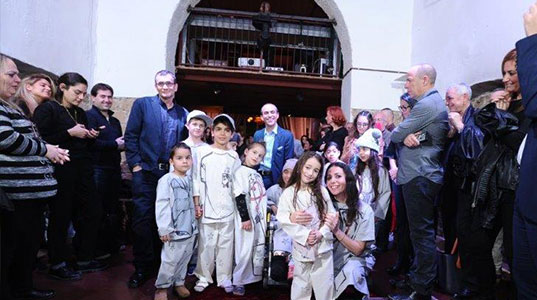
Children modeling at the Dana's New Clothes
event
The last thing that
children in the hospital need is to look and feel like sick patients — so the
children at Dana-Dwek Children’s Hospital, along with their parents and hospital
staff, rolled up their sleeves and did something about it. With generous support
from the Maskit Fashion House, the children designed new hospital gowns that let
them express themselves, be comfortable and make the best of a difficult
situation.
Fundraising for a great cause
The
money for the new duds came from a clever fundraiser that also showed off the
children’s talents. Equipped with digital cameras, they took photographs
documenting their hospital experience. They then displayed their photographs at
a Noor Gallery exhibition opening entitled Dana’s New Clothes, produced a
professional photo book, and sold prints. The children modeled their designs
with a new perspective, redefining what it means to be a patient.
Hats off to the children
All in
all, the event, which also featured a performance by Shefita, raised over
$80,000 (NIS 300,000) toward the purchase of the new
gowns.
The Pfizer family provides mission-advancing backing for
the Medical Center
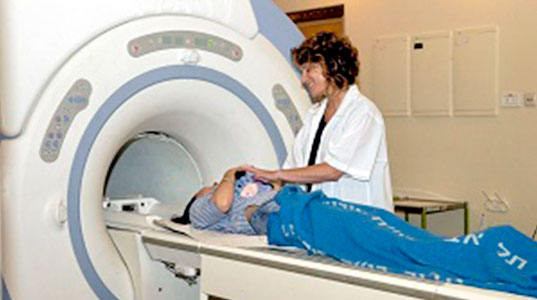
Supporting two mission-critical initiatives close to their
hearts, Lily Pfizer and her husband, Professor Reuven Pfizer, former Maternity
Ward director, have donated generously to advance services for children and to
boost hospital leadership.
Setting sights on a new Pediatric Imaging
Center
The new Pediatric Imaging Center that the Pfizer family has
funded will enable children to undergo diagnostic imaging testing in a
kid-friendly environment close to Dana-Dwek Children’s Hospital, instead of
being taken to the adult facility.
The Pfizer Wexler Ofek Fellowship Fund
nurtures the next generation of medical professionals
The Ofek
Program, which offers fellowships and training for up-and-coming physicians in
medicine, research, and management, was re-designed and expanded this year
thanks to the Pfizer Wexler Ofek Fellowship Fund for 2017.
The expanded Ofek
initiative will select outstanding physicians and personalize programs for them
in a five-year track of excellence for future development.
The program
donations were made by the Fund for Development and Advancement, founded by Lily
Pfizer’s late father, Mr. Emanuel Racine, who also gave generously to the
Medical Center, commemorating his wife in the establishment of the Sara Racine
IVF Unit.
Just what the doctor ordered: The Azrieli Foundation
donates $10 million for precision diagnostics
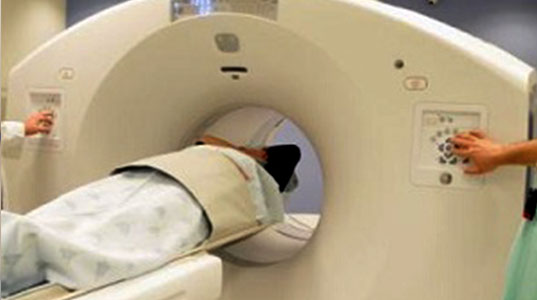
On
a visit to Tel Aviv Sourasky Medical Center in 2016, Dana Azrieli, Chair of the
Azrieli Group, gained a first-hand view of the Medical Center’s numerous
contributions across the medical spectrum for residents from all over Israel.
She also developed a new appreciation of the Medical Center’s severe budget
limitations for procuring state-of-the-art equipment for care and research.
An application that matched the Azrieli
Foundation’s mission for medical care and research
The Azrieli
Foundation, headed by Naomi Azrieli, graciously responded to a proposal to fund
precision diagnostics equipment for the Nuclear Imaging Institute, the Genetics
Institute, and the Pathology Institute. This equipment will enable the Medical
Center to provide personalized, targeted, and accelerated care using a
collaborative approach to diseases as broad as cardiology, hematology, oncology,
neurology, and gastroenterology, to name only a few. This integrated
machine-enabled method will help diagnose patients more quickly and lower
testing risks, reduce pain and suffering, and eliminate many unknowns that are
frightening for patients and their families.
Propelling the Medical Center into a new
era
The Azrieli Foundation donated $10 million to purchase this
precision equipment, which will help realize the Medical Center’s vision of
medical and research excellence and multi-disciplinary leadership worldwide. We
are deeply grateful to the Azrieli family and the Azrieli Foundation for their
generous donation.
The Nissim Douek Center for Medical Simulation for
hands-on training
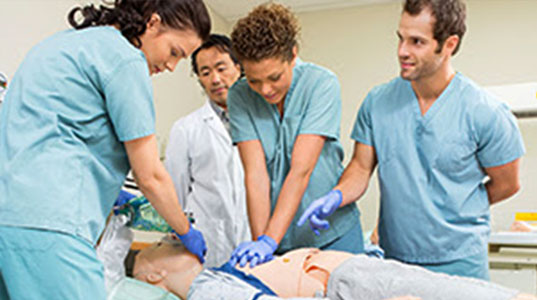
The medical simulation field is growing rapidly, with more
and more medical schools and training programs requiring simulation for
physicians in training. The Nissim Douek Center for Medical Simulation will
promote safe and effective medical practices with no risk to patients and
caregivers. It will also provide immediate feedback to trainees while
documenting and assessing their performance.
Simulating care leads to medical
excellence
In simulation, physicians use mannequins with fully
interactive, realistic simulators to practice procedures in surgery,
anesthesiology, intensive care, emergency medicine, and other clinical settings.
Simulation also goes beyond medical technique. It builds physicians’ skills
regarding bedside manner and enables role-playing for interacting with patients’
families in difficult situations.
A goal made possible by Mr. Ronny Douek’s
generous donation
Thanks to Mr. Ronny Douek’s generous donation, the
Nissim Douek Center for Medical Simulation will have more than 5,300 square feet
of dedicated simulation space with state-of-the-art simulators that include
computer-controlled mannequins, task trainers, virtual-reality flat-screen
simulators, and clinical equipment that is new to Israel.
The center’s main
mission is to develop competent, confident, astute, reflective and ethical
health-care providers. Studies show that the Medical Center can expect to lower
medical incidents and increase patient satisfaction in the process.
Financial support by the Chaya Charitable Trust aims to
help identify the genetics that protect against Parkinson’s disease
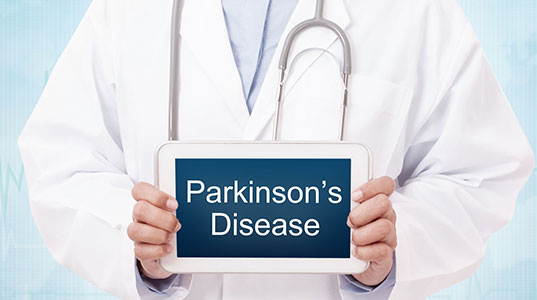
Parkinson’s disease (PD) is a common late-onset
neurodegenerative disease that affects two percent of all people over 65 of all
races and geographical origins. PD symptoms include slow movement, resting
tremor, muscle rigidity, and postural instability. There is no cure or therapy
to protect against neuron loss in PD at present.
PD has genetic, age and/or environmental causes.
Interestingly, an Ashkenazi gene mutation that occurs in 75 percent of the
population is associated with people who do not get the disease. The Medical
Center team, led by Genetics Institute Director Professor Avi Orr-Urtreger and
Neurology Division Head Professor Nir Giladi, has been studying this mutation,
as well as other PD-related genes and their potential protective factors for
PD.
A donation that serves a dual
mission
The generous donation by the Chaya Charitable Trust will
enable the team to study Ashkenazi Jewish PD patients as well as these
protective genetic variants. This contribution will help them make strides in
understanding neurodegeneration in order to provide better disease care and
prevention. Since Parkinson’s disease starts years before symptoms occur, the
window of time for prevention is wide open.
Morris Kahn invests in up-and-coming researchers over
five years
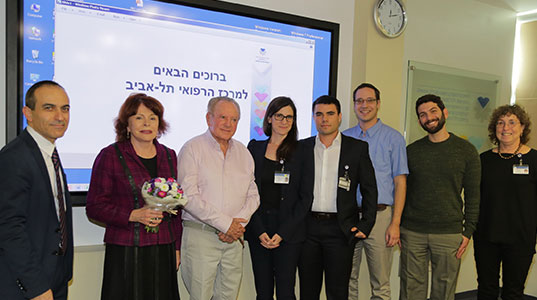
From left to right: Professor Ronni Gamzu, Ms.
Ariella Kisch Delaney, Mr. Morris Kahn, 4 Medical Center researchers, Dr. Michal
Roll
The Medical Center places great importance on
advancing research and nurturing the younger generation of outstanding research
physicians. Thanks to a big-hearted donation of two million dollars from Morris
Kahn, the Medical Center has launched the Orion Program for outstanding
researchers. This program enables outstanding physicians to perform research in
parallel with their clinical specialization so that their training and work
promote quality research, medicine, and teaching.
Rewarding excellence and potential in clinical
care and research
Each of the four physicians selected to be Kahn
Fellows receives $125,000 (NIS 500,000) over five years. Fellowship recipients
were selected by a scientific committee headed by Professor Gad Keren, the
Medical Center’s Chief Scientist. The selection also factored in the
availability of a supportive research environment and the potential adaptation
of the research to the hospital’s needs.
The following doctors were
chosen:
Dr. Aya Barzelay
Department of Ophthalmology,
under the guidance of Professor Adiel Barak and Professor Anat
Levenstein
Dr. Or Friedman
Department of Plastic and
Reconstructive Surgery, under the supervision of Dr. Nir Shani and Dr. Eyal
Gur
Dr. Itay Moskowitz
The Institute of Digestive
and Liver Diseases, under the direction of Dr. Ehud Sigmund and Professor Zamir
Halpern
Dr. Ofer Isakov
The Institute of Digestive
and Liver Diseases and the Genetics Institute, under the guidance of Professor
Iris Dotan and Dr. Shai Ben Shachar
2016 in review
2016:
A record year of activity
493,000
hospitalization days
up
1% from 2015
1.88
million
ambulatory care/consultation visits
up
7% from 2015
36,000
surgeries
up
3% from 2015
213,000
emergency room visits
down
1% from 2015
11,629
births
down
1% from 2015
What’s new?
Infant treated at the Medical Center was the first in Israel to receive a
pioneering medication for neuro-muscular disease
Dana-Dwek Children’s Hospital was the first in Israel to
administer the FDA-approved drug Sprinraza for treating spinal muscular atrophy
(SMA) in infants. The patient, a six-month-old girl who responded well to her
first dose of the therapy, is one of the 6,000 to 11,000 people afflicted with
this genetic condition. Without treatment, patients lose motor neuron function
and experience progressive muscle atrophy, especially in the respiratory system,
which can lead to premature death.

A breakthrough toward a cure
Prof. Aviva Fattal-Valevski, head
of the hospital’s Pediatric Neurology Unit, said, “This is a breakthrough in the
treatment of genetic diseases of this type, which in the past would have been
considered science fiction.”
We hope that the drug will soon become part of
the health basket, joining the list of medications available to patients in
Israel.
Hip-joint rehabilitation without invasive surgery
“It is now possible to rehabilitate and restore hip joints so that patients
can return to doing things that were once part of their normal routine,” says
Dr. Ehud Rath, the Director of the Minimally Invasive Orthopedics Unit, who set
the global trend by pioneering the arthroscopic non-invasive surgical
technique.
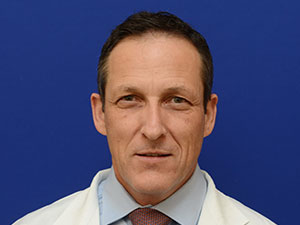 Accelerated recovery and return to activity
Accelerated recovery and return to activity
The procedure is
performed as day surgery, with patients discharged either on the same day or the
next day. In most cases, patients can put weight on their foot several hours
after surgery and can walk without crutches after about two weeks. It takes
about three months for athletes to return to their previous performance levels.
This personalized medicine, which includes tailored rehabilitation, is the last
word in Western hip solutions.
Dr. Rath and his team recently published
an effective new technique for post-arthroscopic pain relief for the initial
recovery period – the first 12 hours after the surgery.
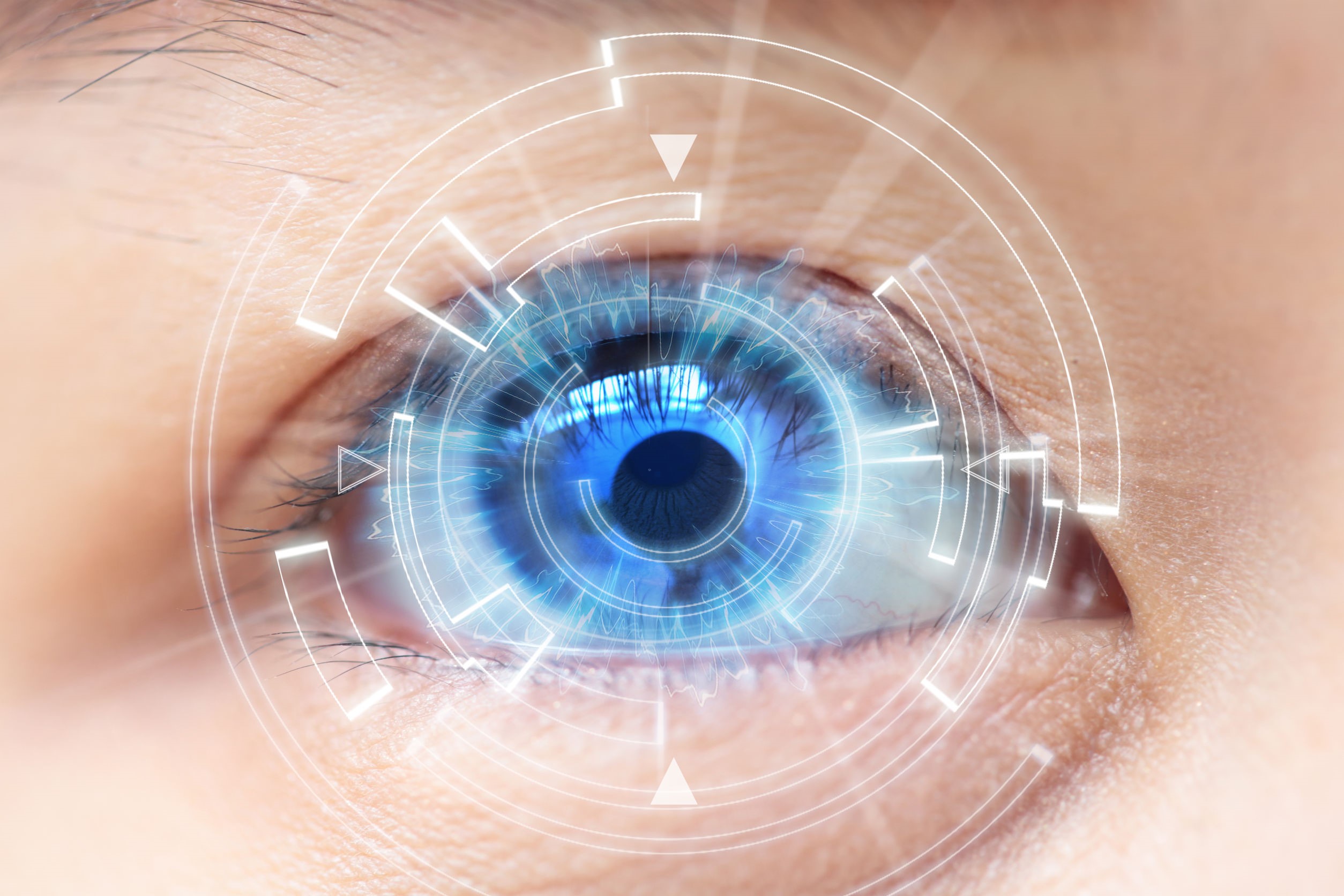 Cataract investment shortens transplant wait times
dramatically
Cataract investment shortens transplant wait times
dramatically
Patients needing cataract transplants at Tel Aviv Sourasky Medical Center no
longer need to wait a year, as is the average in Israel. Dr. David Varssano,
Head of Corneal Transplants, explains that the Medical Center has purchased a
cornea bank, which now enables many patients to undergo a transplant as a
routine procedure due to organ availability. In the last seven months of 2016,
at least 75 patients began seeing more clearly thanks to transplants of donated
corneas.
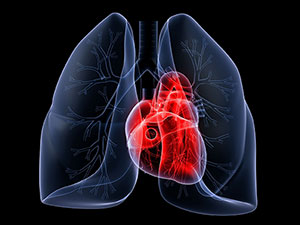 Critically ill patients breathe more easily
Critically ill patients breathe more easily
The intensive care unit now has an improved method for supporting patients
whose hearts and lungs are not strong enough to exchange oxygen and carbon
dioxide. The extracorporeal membrane oxygenation (ECMO) system provides cardiac
and respiratory support for critical patients suffering from respiratory failure
due to infection, flu or other serious conditions, and for patients recovering
from surgery.
 The latest in cardiac mapping – the only medical center in
Israel
The latest in cardiac mapping – the only medical center in
Israel
The Interventional Cardiology Unit has a new arrhythmia machine that enables
a more precise mapping of electrical stimuli originating from the inner surface
of the heart’s chambers. The system enables cardiologists to navigate precisely
within the heart in order to identify the pathological causes of arrhythmias and
neutralize them with ablation techniques.
A revolutionary, minimally-invasive surgery for heart valve
surgeries
Cardiovascular surgeons have succeeded in performing a new operation to
repair mitral heart valves using a small incision and without needing a
heart-lung machine. The procedure has  been used successfully on two patients so far. It uses NeoChord
technology, which enables valve repair without stopping the heart, and reduces
surgical trauma.
been used successfully on two patients so far. It uses NeoChord
technology, which enables valve repair without stopping the heart, and reduces
surgical trauma.
A benchmark in surgical
recovery
This technology, which has been tested in a small number of
medical centers around the world, uses a transesophageal echocardiogram and
three-dimensional guidance. The procedure — a best practice for collaboration
among surgeons, cardiologists, echocardiographers, and anesthesiologists —
positions the Medical Center as a leader in innovative and minimally invasive
surgery.
 Residential tower for professional Medical Center staff opening
soon
Residential tower for professional Medical Center staff opening
soon
Constructed for the Medical Center’s dedicated care team, the newly built
on-campus iLIVE residential tower will be ready for tenancy as early as
September 2017. The 20-storey tower features 274 rental apartments. This
amenity-rich, reduced-rent facility will help staff members work close to home
so that they can have more family time and still be available in times of
emergency.
New medical services
Newly launched pain clinic supports children with acute or chronic
pain
 The new Multidisciplinary Pediatric Pain Clinic at Dana-Dwek
Children’s Hospital addresses the unique needs of children who experience
chronic or acute pain. The clinic’s objectives are to provide treatment and
therapies based on the best medical evidence to help children take control of
their lives instead of letting their lives be controlled by pain. This improves
well-being and helps children return to their regular daily activities, such as
going to school and participating in extra-curricular activities, socializing
and performing the physical activities they used to enjoy.
The new Multidisciplinary Pediatric Pain Clinic at Dana-Dwek
Children’s Hospital addresses the unique needs of children who experience
chronic or acute pain. The clinic’s objectives are to provide treatment and
therapies based on the best medical evidence to help children take control of
their lives instead of letting their lives be controlled by pain. This improves
well-being and helps children return to their regular daily activities, such as
going to school and participating in extra-curricular activities, socializing
and performing the physical activities they used to enjoy.
The pain clinic uses a family-centered “3 P” approach, providing
pharmacology (medication), psychology (coping strategies and therapy), and
physiotherapy (for return to optimized physical activity).
The clinic, which is managed by Dr. Daniel Stocki, a pediatric
anesthesiologist, is staffed by two pediatric psychologists, two pediatric
physiotherapists, and a pain-care nurse.
Clinic for diagnosing and treating sexually
transmitted diseases
 The new clinic provides diagnostic services for primary venereal
diseases, such as gonorrhea, chlamydia and AIDS, with a fast-track two-hour
turnaround. This service, which focuses on early detection to help prevent
serious health impact, is completely anonymous. When necessary, the patient is
treated immediately or referred for further testing.
The new clinic provides diagnostic services for primary venereal
diseases, such as gonorrhea, chlamydia and AIDS, with a fast-track two-hour
turnaround. This service, which focuses on early detection to help prevent
serious health impact, is completely anonymous. When necessary, the patient is
treated immediately or referred for further testing.
A Life-Saving Stroke Phone
 Every minute counts for patients who have had a stroke. The Stroke
Phone enables patients to be treated while en route to the hospital and prepares
the stroke care team to be ready for the patient’s arrival. Magen David Adom
ambulance personnel use the Stroke Phone to contact the hospital’s emergency
care staff and expert neurologist while they are on the way to the
ER.
Every minute counts for patients who have had a stroke. The Stroke
Phone enables patients to be treated while en route to the hospital and prepares
the stroke care team to be ready for the patient’s arrival. Magen David Adom
ambulance personnel use the Stroke Phone to contact the hospital’s emergency
care staff and expert neurologist while they are on the way to the
ER.
Orchestrating care
Care for severe strokes requires a
cross-disciplinary team that includes a neurologist who specializes in stroke
care, a cerebral angiography specialist, imaging specialists and diagnosticians.
The Medical Center’s rededicated Stroke Center, headed by Dr. Hen Hallevi,
enables patient-focused care from arrival through discharge and
rehabilitation.
A round of applause
Awards
Dr. Anat Mirelman is awarded the prestigious Susanne Klein-Vogelbach
Prize
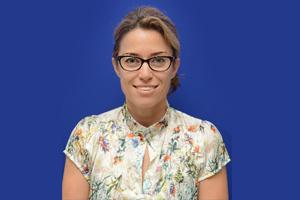 Dr. Anat Mirelman, the Deputy Director of the Center for the Study of
Movement Cognition and Mobility, was recently awarded the 2016 Susanne
Klein-Vogelbach Prize for the Research of Human Movement. This international
prize is given to the researcher whose publication has the greatest clinical and
research impact on movement science.
Dr. Anat Mirelman, the Deputy Director of the Center for the Study of
Movement Cognition and Mobility, was recently awarded the 2016 Susanne
Klein-Vogelbach Prize for the Research of Human Movement. This international
prize is given to the researcher whose publication has the greatest clinical and
research impact on movement science.
Dr. Mirelman’s article, which appeared in The Lancet, analyzed the
therapeutic effect of V-Time, the augmented reality walking training system
developed by Tel Aviv Sourasky Medical Center researchers. The study, which was
discussed in a the fall 2016 Medipost, found that the system was 42 percent more
successful in reducing falls in older adults than walking alone.
Appointments
Prof. Ofer Yossepowitch: Director of the Urology Department
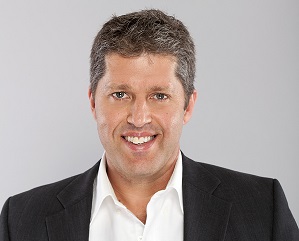
Research excellence
Research program gains new insights into chronic lymphocytic leukemia
Patients with chronic lymphocytic
leukemia (CLL), the most common leukemia in Western countries, have an overall
survival projection ranging from months to decades. CLL has no
cure.
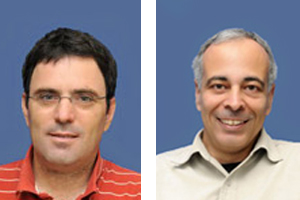 Understanding the environment that supports CLL
progression
Understanding the environment that supports CLL
progression
A major force in CLL cell growth, survival and treatment
resistance is the interaction of the malignant cells with their
microenvironment. A years-long research program by Dr. Yair Herishanu, the
Director of the Research Laboratory for CLL Cell Biology, and Deputy Director of
Hematology Dr. Ben-Zion Katz, with other colleagues, attempts to shed light on
microenvironmental communication in CLL. The aim is to identify novel
therapeutic targets and specifically to overcome current resistance mechanisms
responsible for disease progression.
The team recently identified a
protein (SLP76) in CLL cells that is not expressed in normal cells and that may
be partly responsible for CLL cell survival. Several of their studies pointed to
a specific signaling pathway (NFkB) in the survival of the leukemic cells. The
team is investigating a novel component that may target this pathway to overcome
drug resistance.
The team also showed recently that an immune regulator
(LAG3) also triggers responses that protect CLL cells from programmed cell
death. The team members are exploring ways to block this
mechanism.
A multi-pronged approach to understanding and curing
CLL
This promising research program, which integrates basic science
and clinical research, leverages laboratory methodologies such as molecular and
cellular biology, advanced biochemistry, and drug resistance assays, as well as
patient data analysis.
Orion Project Kahn Fellowship program launched
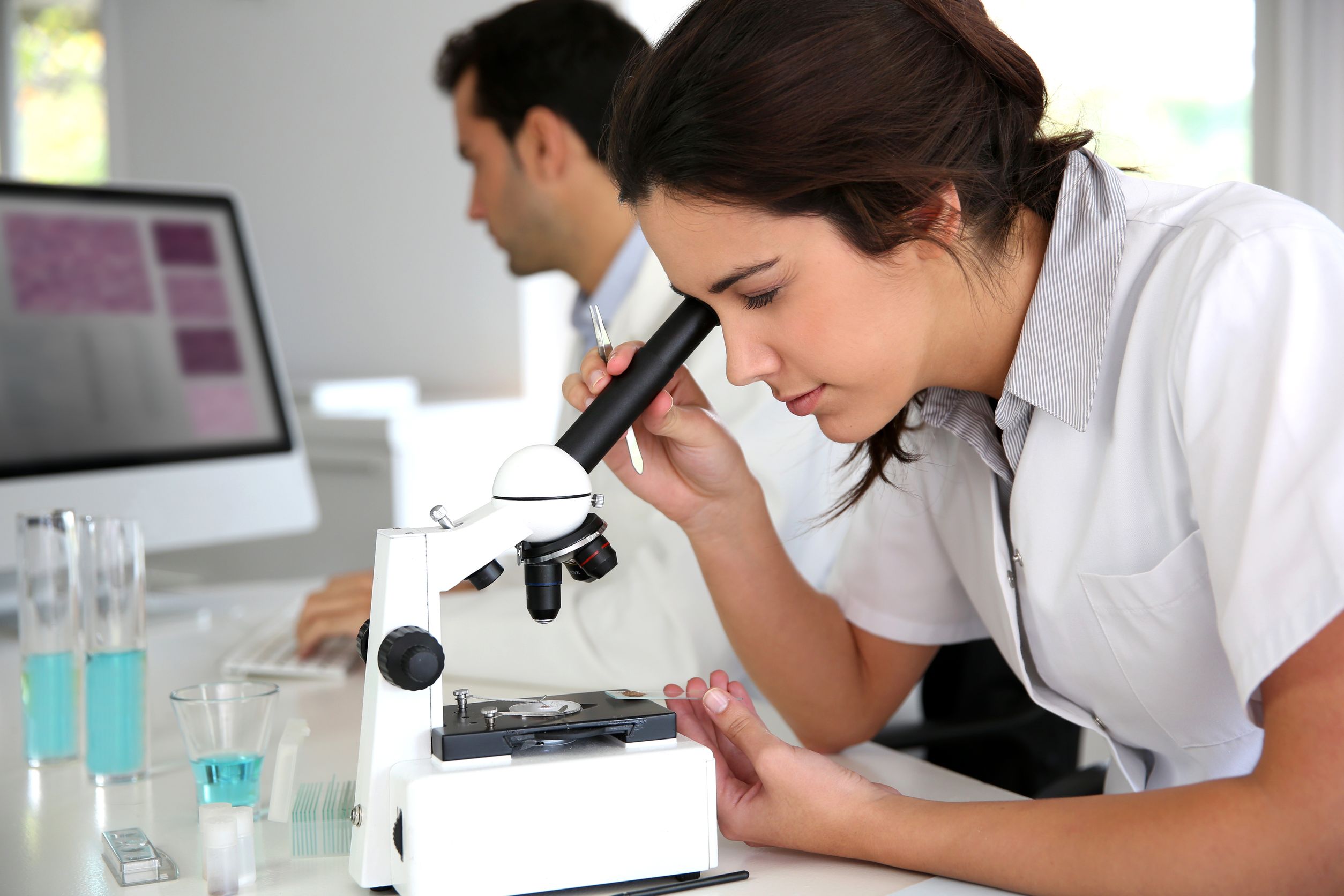 The following four physician-researchers were awarded the Orion
Project Kahn Fellowship, which promotes research excellence and is sponsored by
Morris Kahn:
The following four physician-researchers were awarded the Orion
Project Kahn Fellowship, which promotes research excellence and is sponsored by
Morris Kahn:
Dr. Aya Barzelay: Department of
Ophthalmology
The objective of Dr. Barzelay’s research is to develop
stem cell treatment for macular degeneration (AMD), the leading cause of
blindness in people over age 60. The research aims to develop a
minimally-invasive method to isolate mesenchymal stem cells from the patient.
These cells are an attractive source for autologous stem cells since they can
develop into retinal cells and have anti-inflammatory qualities. The goal is to
isolate the stem cells from the patient, grow them in the laboratory, and
transplant them back into the patient’s retina in order to replace and save
degenerated retinal cells.
Ofer Isakov: The Institute of
Digestive and Liver Diseases and the Genetics Institute
The purpose
of Dr. Isakov’s research is to create a better understanding of complex
disorders such as inflammatory bowel diseases (IBD) by analyzing big data on
genetics, microbes and clinical records. Dr. Isakov will implement advanced
computational and statistical methods to uncover hidden patterns that will help
characterize the development and progression of complex gastrointestinal
disorders. The goal is to improve treatment and overall quality of life for
patients suffering from chronic and debilitating gastrointestinal
diseases.
Or Friedman: Department of Plastic and Reconstructive
Surgery
Dr. Friedman's study in the fields of microsurgery and
cryobiology bridges the gap between current organ transplantation procedures and
future organ and vascular composite tissue banking. The goal of the study is to
develop a safe, reliable, and predictable method for cryopreserving complicated
biological structures, such as a kidney or a whole hand, creating a paradigm
shift in the fields of plastic reconstruction and organ
transplantations.
Dr. Itay Moskowitz: The
Institute of Digestive and Liver Diseases
Dr. Moskowitz aims to
identify novel molecules that can serve as potential therapeutic targets for
immune-mediated diseases of the liver and the digestive tract, specifically
autoimmune liver diseases and inflammatory bowel disease. These insights could
lead to effective treatment solutions for patients with these
conditions.
Technology innovated by world-renowned Medical Center immunotherapy
researcher is the core of successful non-Hodgkin’s lymphoma treatment
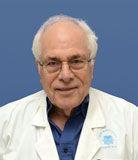 Using technology pioneered by Prof. Zelig Eshhar, the Medical
Center’s Chair of Immunology Research, Kite Pharma has developed KTE-C19, an
investigational therapy in which a patient's T-cells are engineered to express a
chimeric antigen receptor (CAR) to target the antigen CD19, a protein expressed
on the cell surface of B-cell lymphomas and leukemias, and redirect the T-cells
to kill cancer cells.
Using technology pioneered by Prof. Zelig Eshhar, the Medical
Center’s Chair of Immunology Research, Kite Pharma has developed KTE-C19, an
investigational therapy in which a patient's T-cells are engineered to express a
chimeric antigen receptor (CAR) to target the antigen CD19, a protein expressed
on the cell surface of B-cell lymphomas and leukemias, and redirect the T-cells
to kill cancer cells.
Positive experimental
outcomes
Results published from a multicenter study showed an
objective response rate of 76 percent, including a 47 percent complete remission
rate. Prof. Irit Avivi, Director of the Medical Center’s Hematology Division,
one of the participating research sites, says, “The outcomes of the CAR-T
research show great promise for treating patients suffering from this aggressive
disease. We will continue to apply what has been learned to additional research,
and hopefully, to advance therapeutic solutions in the future.”
